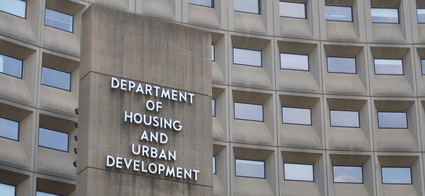
The Real Estate Roundtable asked House lawmakers on Wednesday to direct the U.S. Department of Housing and Urban Development (HUD) to reconsider a recent federal energy codes rule because it does not adequately consider impacts on affordable housing. (Roundtable Statement, May 22 for House Hearing)
HUD’s Energy Codes Rule
- Last month, HUD and the U.S. Department of Agriculture (USDA) issued a joint rule that applies the most recent, stringent—and costly—model energy code standards to new residential construction receiving the agencies’ financial support. (Roundtable Weekly, May 3)
- The rule would apply to both single- and multifamily homes covered by HUD and USDA programs, including homes backed with federal mortgage insurance. HUD itself estimated the rule would add at least $7,229 to the cost of building a new single-family home. (HUD’s rule | House subcommittee memo)
- The May 22 House hearing considered how HUD’s rule and other green building policies impact homeownership, price buyers out of the market, and burden renters. The National Association of Home Builders testified at the hearing, and the National Multifamily Housing Council and National Apartment Association submitted a joint statement. (Subcommittee hearing YouTube video)
Roundtable Recommendations

- The Roundtable’s statement explained that policymakers must prioritize both the climate crisis and our nation’s housing crisis, but that HUD’s federal codes rule is not balanced and should be re-considered.
- The new nationwide rule imposing the highest energy efficiency standards, currently adopted by only a handful of states, must be assessed in light of the Biden-Harris administration’s goals to address the serious U.S. housing shortage and create two million affordable units. (Biden Administration Affordable Housing Policy Fact Sheet, March 7)
- RER’s letter also explained how the new federal codes rule adds yet another layer to a stacked mix of stringent government rules and other headwinds that have made single- and multifamily housing construction a “hyper-regulated business.”
- Reducing buildings’ energy use and climate emissions are critical policies, but the Administration should not pass new regulations that “make the housing crisis worse,” The Roundtable explained. A more balanced re-assessment of HUD’s and USDA’s action is warranted.
This week’s hearing follows House testimony recently delivered by Roundtable President and CEO Jeff DeBoer, who reinforced the messages that the health of commercial and residential real estate markets are intertwined—and excessive regulations that make housing prices and rents unaffordable for working-class families must be avoided. (DeBoer’s April 30 oral statement and written testimony | Roundtable Weekly, April 30)
# # #